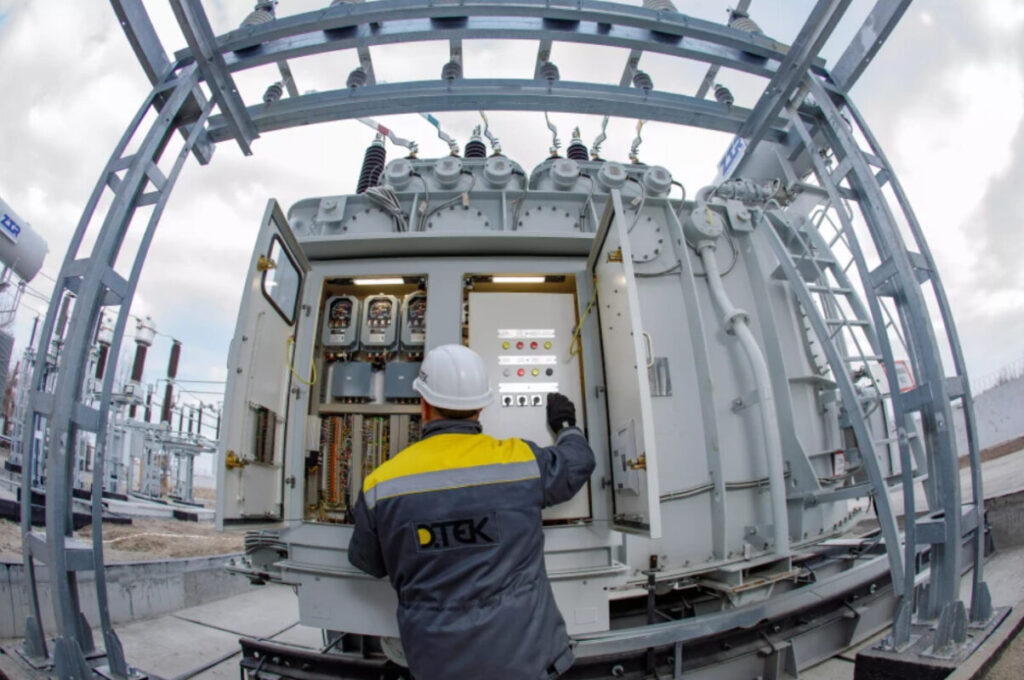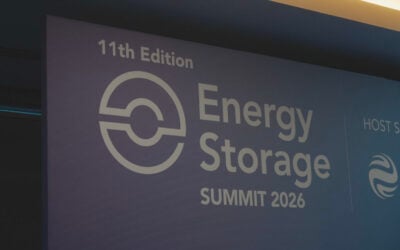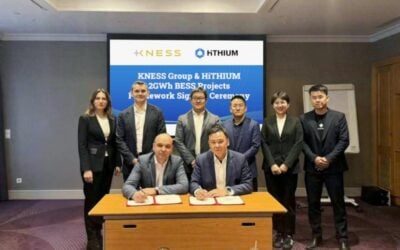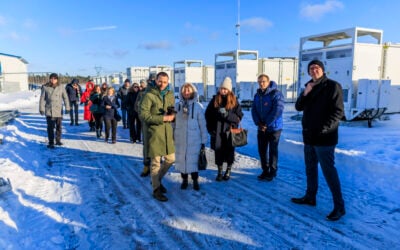
Energy investment group DTEK discusses its large-scale BESS in Poland and Ukraine, where it recently won big in an ancillary services auction, as well as the ongoing war with Russia.
Vadym Utkin, energy storage lead for DTEK, was speaking to Energy-Storage.news at Solar Media’s Energy Storage Summit Central and Eastern Europe (CEE) 2024 in Warsaw, Poland at the end of September.
Ukraine and Poland large-scale BESS projects underway
The company recently won long-term ancillary service contracts from transmission system operator (TSO) Ukrenergo for a swathe of BESS projects, which need to be online by August 2025, an ‘aggressive’ timeline, Utkin said.
Its BESS projects won in both frequency containment reserve (FCR) and automatic frequency restoration reserves (aFRR). Uktin said that FCR was significantly oversubscribed, while aFRR was undersubscribed, because the latter’s activation profile and its impact on BESS degradation is less predictable, turning off many operators.
Try Premium for just $1
- Full premium access for the first month at only $1
- Converts to an annual rate after 30 days unless cancelled
- Cancel anytime during the trial period
Premium Benefits
- Expert industry analysis and interviews
- Digital access to PV Tech Power journal
- Exclusive event discounts
Or get the full Premium subscription right away
Or continue reading this article for free
The payments for the ancillary services in Ukraine are also indexed to the Euro, mitigating any currency risk from fluctuations in the Ukrainian Hryvnia, making BESS procurement more straightforward, Utkin said.
Despite the degradation question, aFRR is nonetheless ‘the future’ for BESS across Europe, Utkin said, with the lack of depth for FCR meaning it will saturate quickly as large-scale BESS come online. DTEK’s Poland project, a 132MW/532MWh system acquired from developer Colombus in March this year, could cover some 80%+ of Poland’s FCR needs alone, Utkin said.
DTEK’s Poland project’s capacity market (CM) obligations (it won in the 2022 auction) begin in 2027. Utkin is bullish on the Polish market, especially since a reform of its balancing market from 1-hour to 15-minute settlement periods in the middle of this year, which “increased the business case for BESS by 30% alone”, he said.
War with Russia
Utkin also spoke candidly about the war with Russia and how that is impacting the power grid, and DTEK’s own activities.
“So I’ve been really surprised, even as someone working in the energy sector for many years, at the resilience of the grid. Honestly, if somebody told me two years ago that there would be literally thousands of missiles launched on the power grid and I’d still have the lights on in Kiev…” Uktin said.
“We did have a few hours without lights after the July attacks but nothing like days or months. I think Ukraine has more batteries per capita than any other country in the world, but all of them are behind-the-meter (BTM) because almost every single Ukrainian family bought home batteries from Chinese manufacturers just to survive the outages.”
DTEK will mainly be financing its BESS projects with its own funds, Utkin said.





